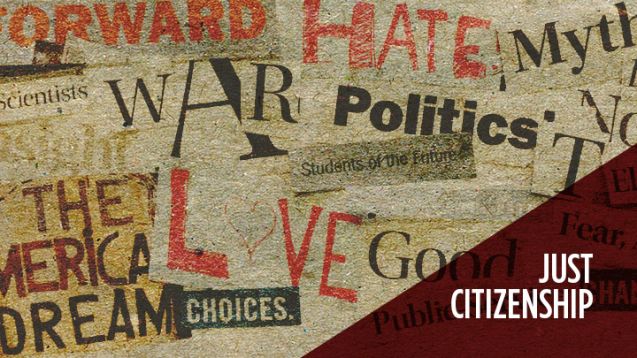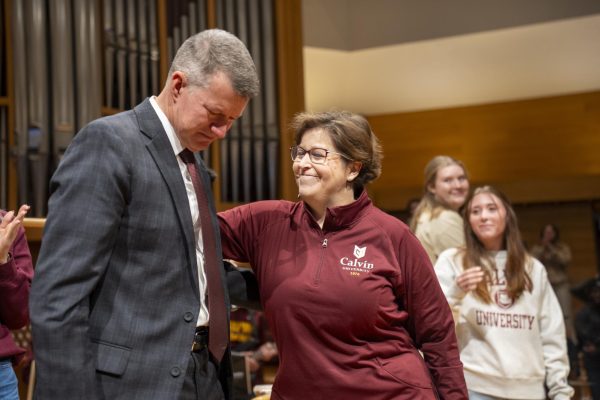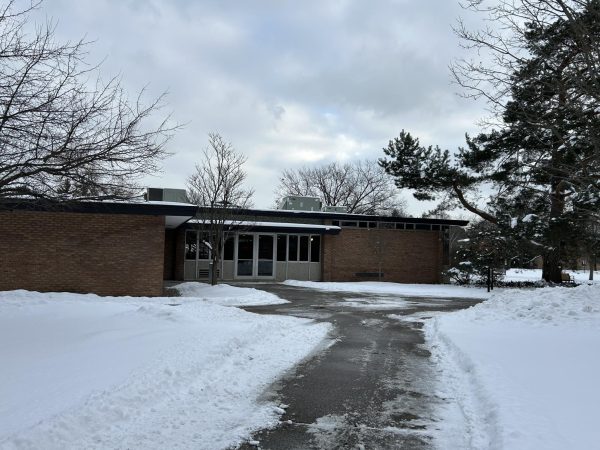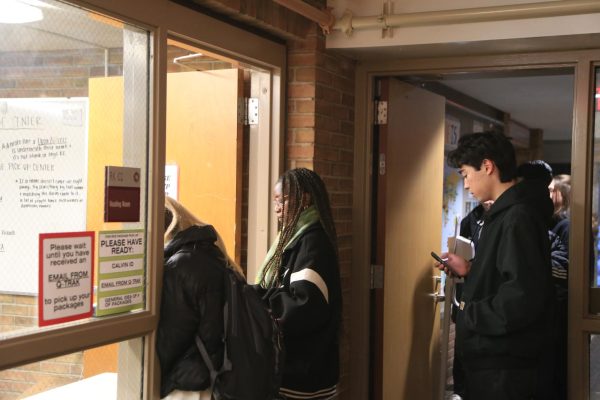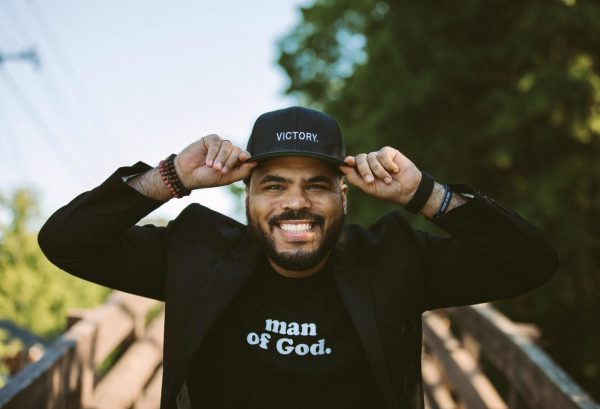Just Citizenship discussion series continues
This was the fourth installment of the weekly forum which seeks renewal in society and politics. Photo courtesy Calvin.edu.
Sitting on the chapel stage, experts on our current political identity prepared to answer, “What were the mindsets that led to the current political situation?” The panel was comprised of Kevin den Dulk, professor of political science; Kristin Du Mez, professor of history; and Elisha Marr and Mark Mulder, professors of sociology and social work.
Statistically, Kevin den Dulk argued, voting patterns in this past election were indistinguishable and demonstrated continuity with previous election years. However, 2016 proved to be a critical election in which voters felt a shift in political identity, similar to the elections of 1932 (Hoover) and 1968 (Nixon). Den Dulk argued that individual voters found their identity in their partisan party, making the election more personal and contributing to “affective polarization” or emotional decision-making.
“It isn’t that we’re diverse and can’t get along. It’s that we are polarized,” den Dulk spoke to those surprised by the 2016 election. He speculated that an increased distrust of government and believing the “other side is untrustworthy, morally wrong and a threat” created a higher intensity of party loyalties, which were reinforced by non-political factors, such as place of residence, community of peers and particular media news sources.
Mark Mulder defined two major identities of the 2016 election: rural whites and Latinos. Based on the research of other sociologists, Mulder argued the identity is often rooted in place for rural whites. Within this community is a “rural consciousness,” which is the belief that “urbanites” misunderstand and take away resources from hardworking people, forcing them to financially support the “other.” Mulder summarized the mindset of rural whites by describing them as a line of people waiting to receive the “American dream” but being continuously cut by “outsiders,” partnered with the government and hindering the free market.
“[These identities] overlap more and more and inhabit the same space,” Mulder stated. As an example, Mulder discussed the fact that, in this election, Latinos remained consistent in their voting patterns from past elections, despite aggressive anti-immigrant rhetoric from the right. Mulder relied on the polls from 2008, 2012, and 2016 to make this claim.
Delving deeper into sociological research, Elisha Marr presented media representations during the 2016 election, which aroused fear and polarized perceptions of the “Other.” The act of Othering occurs when one group represents another as fundamentally different from itself.
“You cannot avoid the impact of media,” Elisha observed. Political billboards, magazines at store check-outs, email ads and networking apps all increased the media’s influence in comparison to previous decades. In her discussion of CNN and Fox News, she discussed how CNN focuses on political systems and macro-topics while Fox looks at the individual and micro-topics.
Finishing the panel’s introductory discussion, Kristin Du Mez reflected on the religious nature of the 2016 election. Black protestants voted 89 percent for Clinton, while white evangelicals voted 81 percent for Trump, reflecting a steady voting pattern and white evangelicals’ “long-standing hatred for Hillary Clinton.” Du Mez speculated that not only a fear of terrorism but also the authoritarian appeal of Trump contributed to white evangelicals becoming enthusiastic Trump supporters. Du Mez relied on reports from 2012 to 2016 that showed voters valuing a strong leader more than one who shared their values.
Answering how Christians could have voted for Trump, Du Mez claimed that one factor could be based on how Christians have constructed and perceived the correlation between masculinity and power. Looking at the work of James Dobson and John Eldredge — who both constructed Christian masculinity as tough warriors — Du Mez challenged guests to think how Trump may be the fulfillment of certain strand of evangelical Christianity rather than anti-Christian.
The panelists encouraged guests to continue to attend the series in order to learn more about de-polarizing the community. Ending the discussion, the panelists left guests with the hope of forming a deliberate democracy where every citizen can feel stable in our society. Just Citizenship is held every Monday in the chapel at 3:30.
Visit the official webpage for more details.



